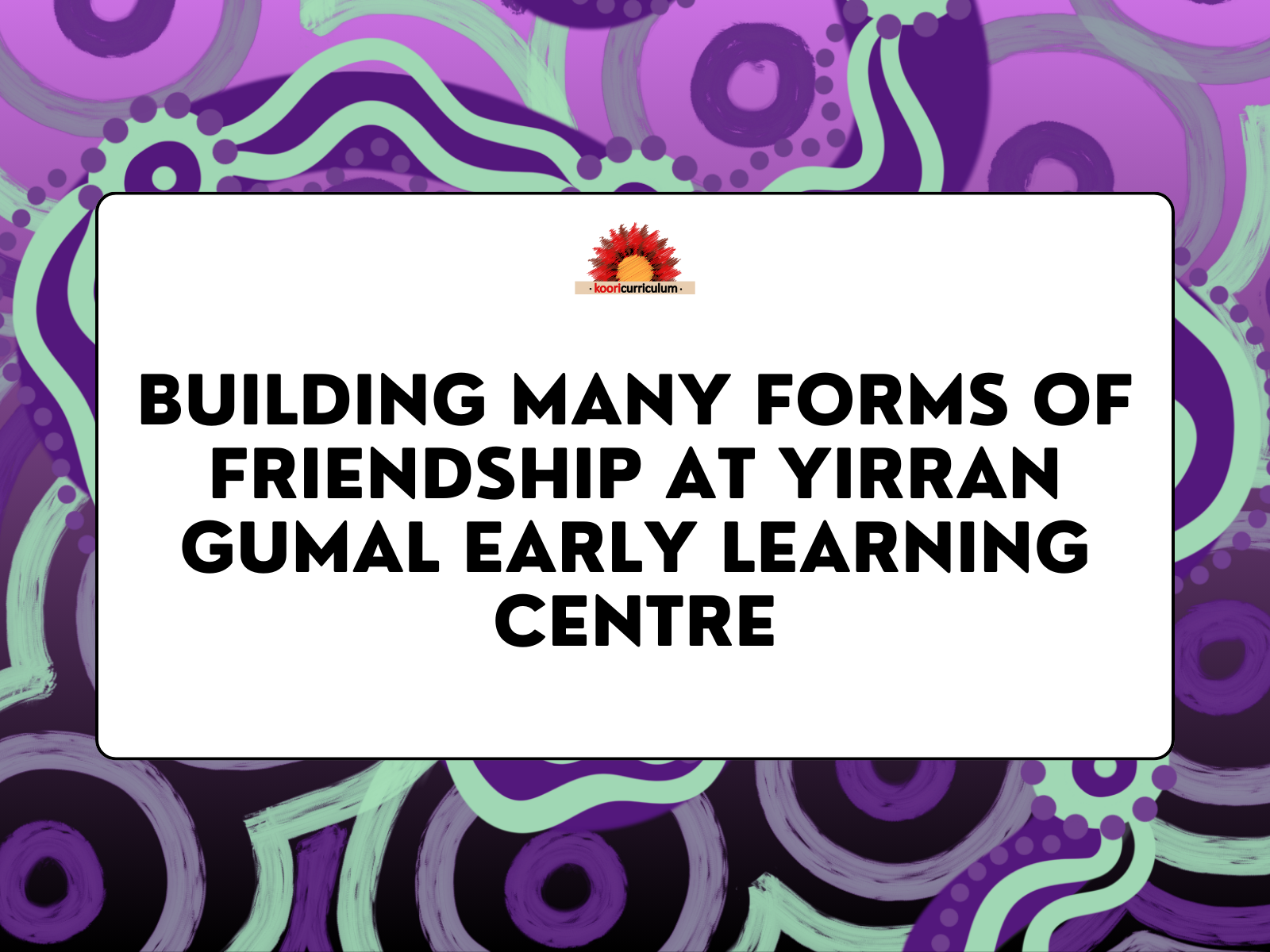Recently, I had the pleasure of visiting Yirran Gumal Early Learning Centre within Steel Park, Marrickville South. Yirran Gumal means “Many Forms of Friendship” in the Sydney Basin Aboriginal language—a beautiful name that perfectly reflects the heart of the centre.
This visit was more than just a professional stop—it was a return to familiar ground. I have a long history with Inner West Council. I attended two of their services as a child, my mum Debbie directed several of their children’s centres, and when I first began working in early childhood as a teenager, I started my career in their services.
Yirran Gumal opened during the challenges of COVID, so it was especially nice to finally step inside, reconnect with educators I once worked alongside, and see the wonderful work they’ve been doing.

A Warm Welcome and Cultural Care
Gina, the centre director, took me on a tour, and I was immediately struck by the thought and care that has gone into creating culturally welcoming play spaces and environments. The attention to detail spoke volumes about the centre’s commitment to inclusivity, respect, and celebrating culture every day—not just on special occasions.

Yarning About Community Connections
During my visit, Gina and I spent time yarning about building and strengthening community connections—a topic close to my heart and one that many educators tell me they find challenging.
Meaningful relationships take time. They also take knowledge—knowing who the key people and organisations are, and understanding how to approach and maintain those connections.
Some examples of valuable community connections include:
-
Elders, language custodians, and cultural knowledge holders
-
Local Aboriginal community-controlled organisations (ACCOs)
-
Cultural centres and consultative groups
-
Artists, storytellers, dancers, and performers
-
Allied health professionals, such as OTs and speech pathologists
-
Community interagencies and service providers
You don’t have to hold relationships with every one of these contacts—but having an awareness of who is out there ensures you can build the right links when the need or opportunity arises.

Ideas in the Making
One of the strategies Gina and I were particularly excited about was the potential for a community playgroup—a way to bring families together, strengthen relationships, and provide a safe and welcoming space for cultural exchange.

Support for Educators
If you’re looking for practical guidance on building strong community networks, we explore this deeply in our new course, Programming, Planning and Pedagogy. As part of this offering, educators are supported to create their own community connections list and learn strategies to approach, grow, and maintain these relationships in a meaningful and respectful way.
Building connections isn’t just good for educators—it enriches the lives of children, families, and the wider community.





